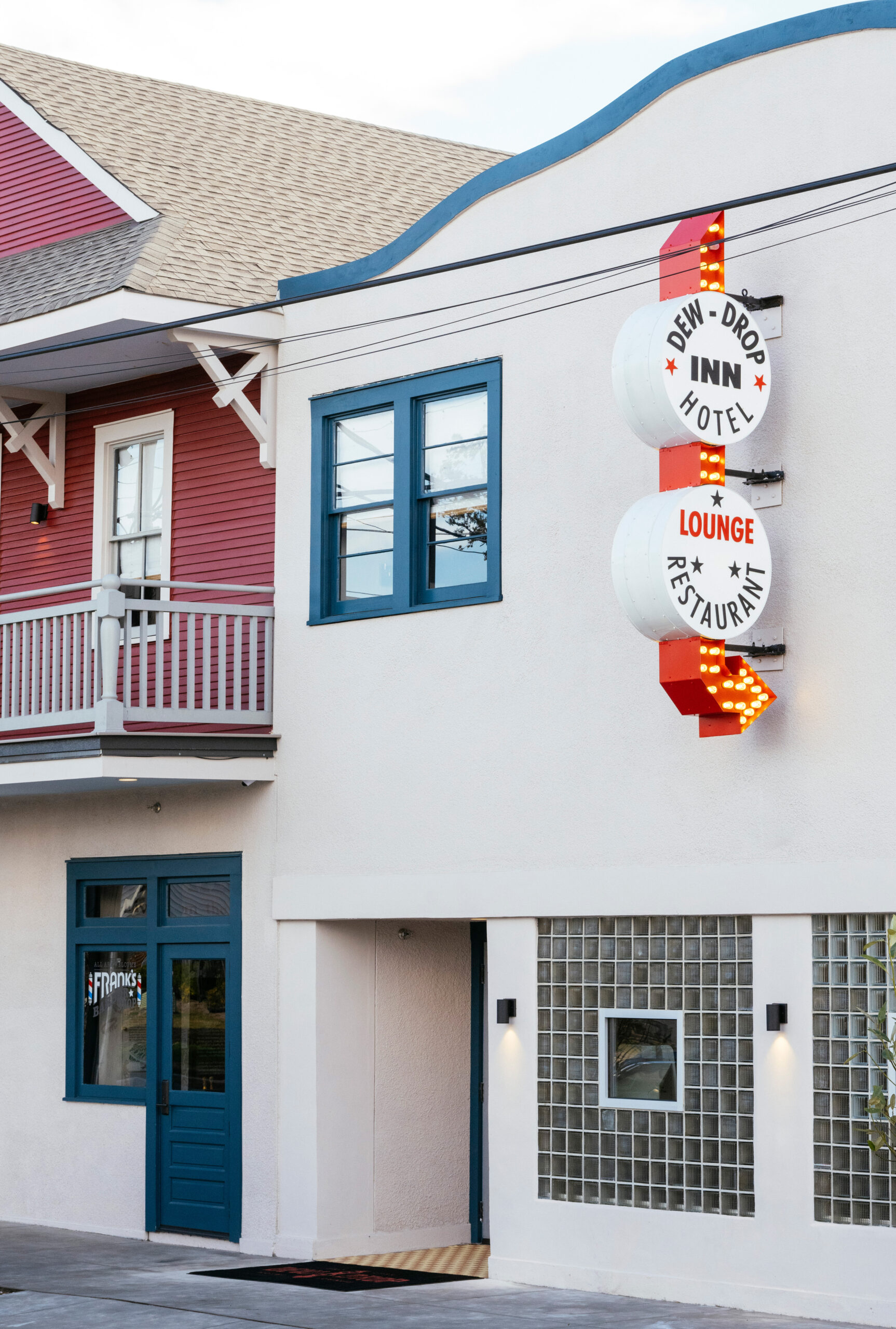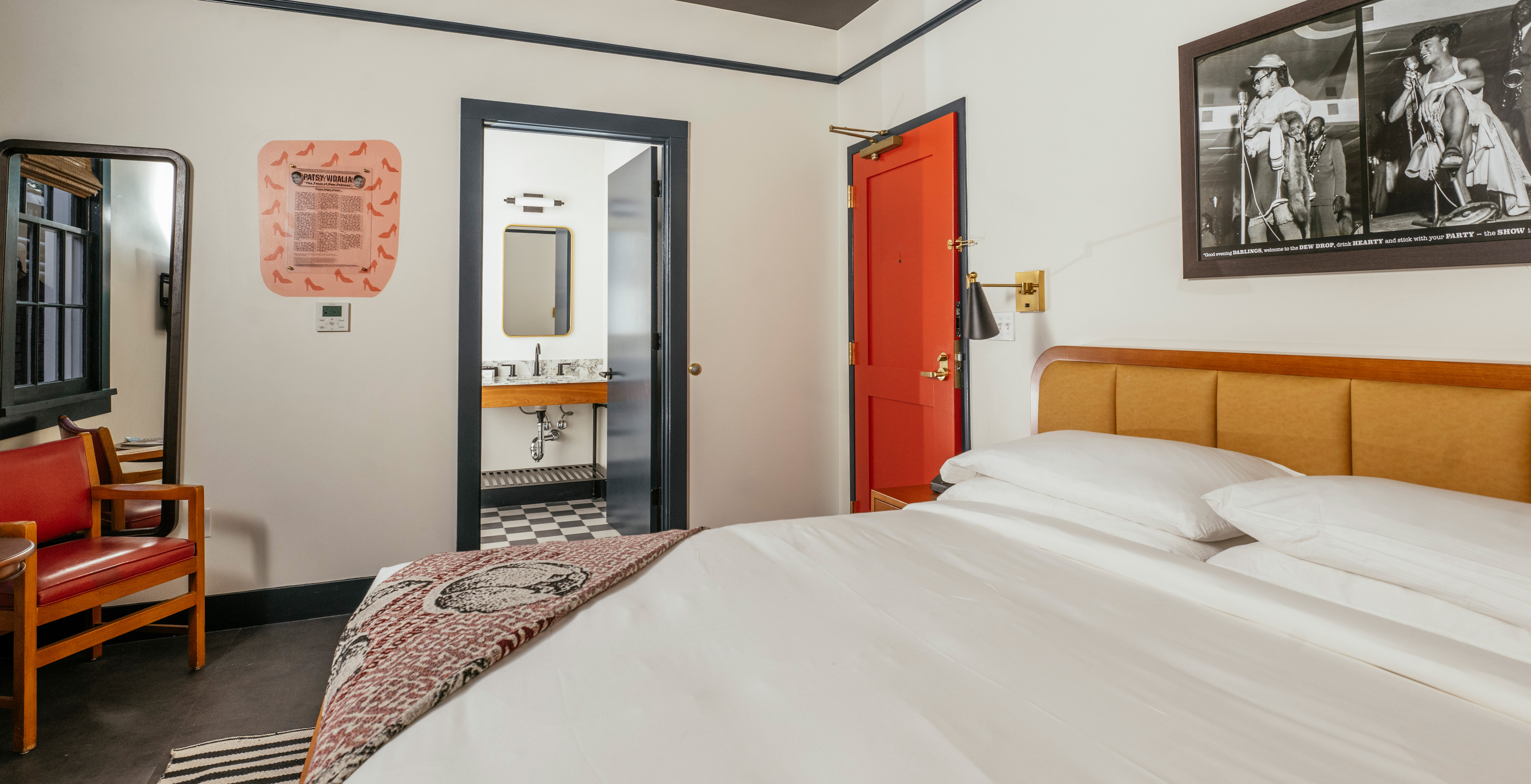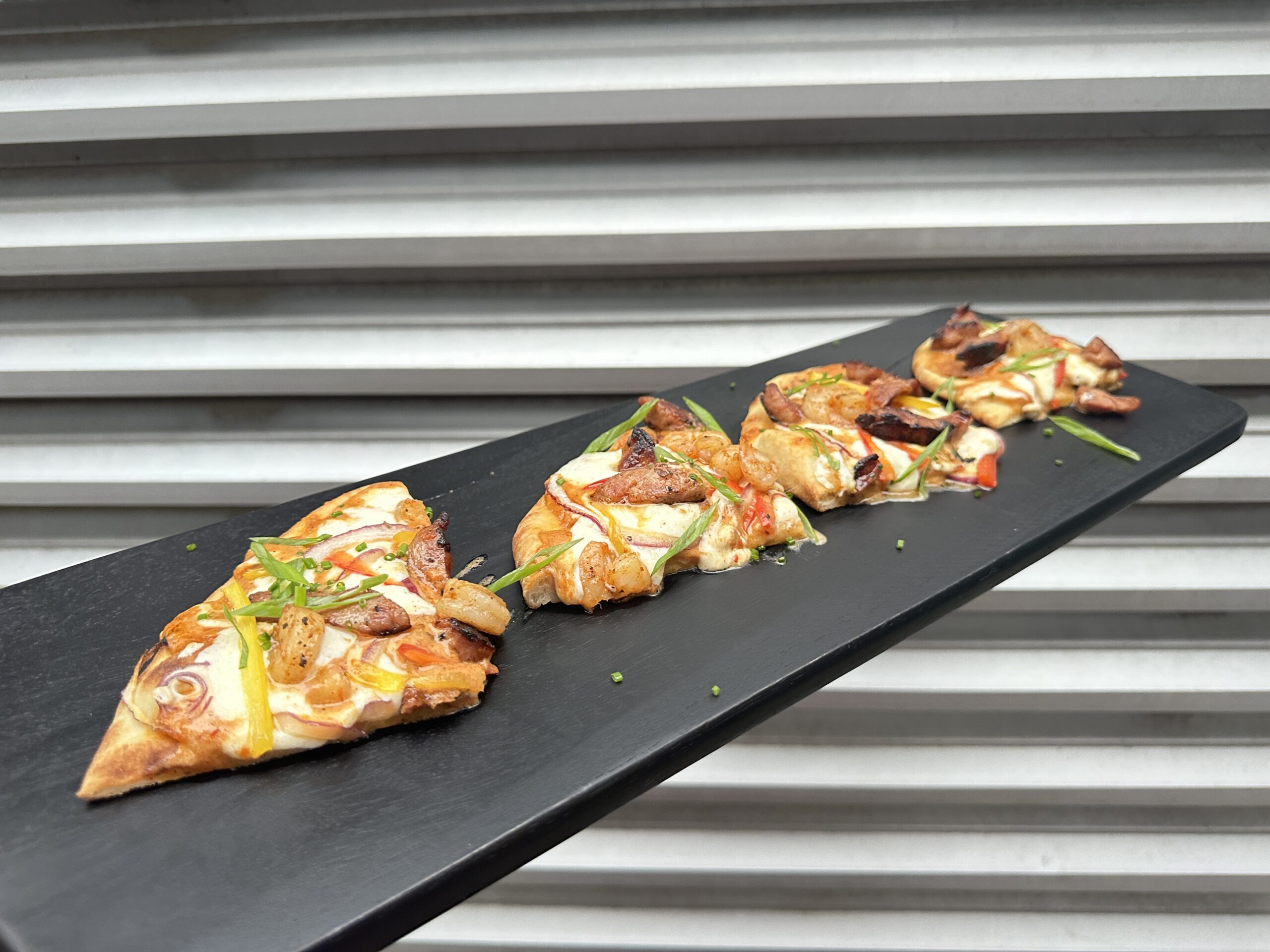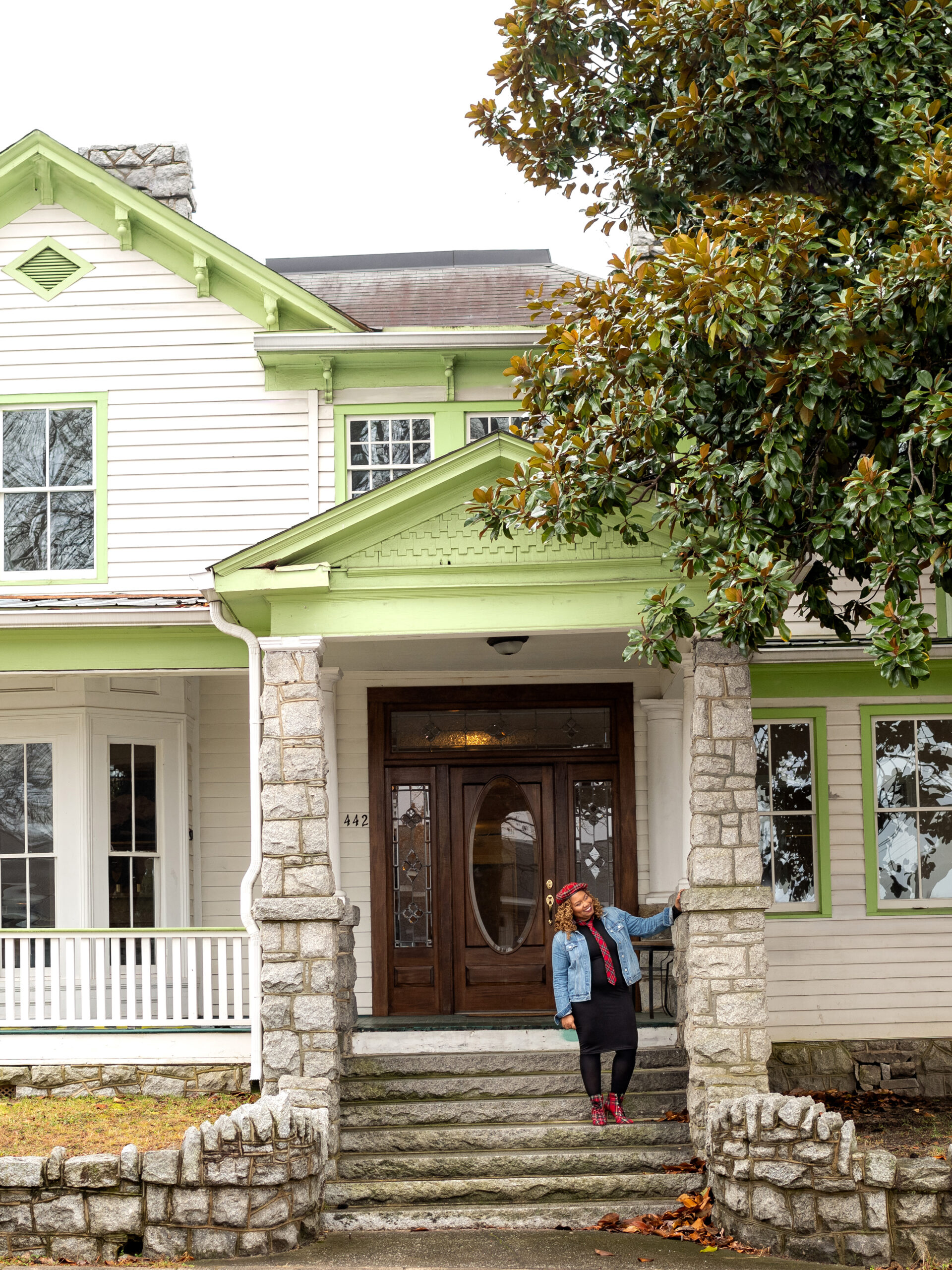New Orleans native and developer Curtis Doucette, Jr. hadn’t heard about the legendary Dew Drop Inn until just a few years ago. Shortly after the acquaintance, the local landmark would change his life.
Doucette was introduced to the historic inn by Kenneth Jackson, the grandson of Frank Painia, who was the property’s original owner. Jackson told Doucette he was just the right person to bring the property back to life. The history of the inn instantly captivated Doucette, and the following year, he decided to take on the project of restoring it.
The original Dew Drop Inn was a combination of two homes built in the early 1900s—the vision of owner Frank Painia, who in 1945 wanted to build a safe haven for Black travelers in the form of a barbershop, bar and restaurant. The inn was featured in the Negro Motorist Green Book and housed historic figures like Little Richard, Ray Charles and local musician Allen Touissant. It was also a live music venue that attracted artists performing on the Chittlin’ Circuit (James Brown, Sam Cooke and Bobby “Blue” Bland).
Doucette, who is intent on ensuring the landmark is on the radar of locals and tourists alike, opened the renovated Dew Drop Inn for bookings on February 8—right at the start of Black History Month and just in time for Mardi Gras festivities. It features 17 guest rooms that pay homage to historic figures who have spent significant time within the inn’s walls. The music venue will welcome acts that have played at the inn during its heyday, as well as upcoming and established musicians who embody the energy and creative spirit of those who helped make the inn known as “the South’s swankiest spot” in the ‘50s and ‘60s. A pool club called the Haven (featuring a pool bar and patio), a Creole restaurant spearheaded by Doucette’s Aunt, Chef Marilyn Doucette, and an informal museum housed in the barbershop space complete the boutique inn’s offerings and amenities.

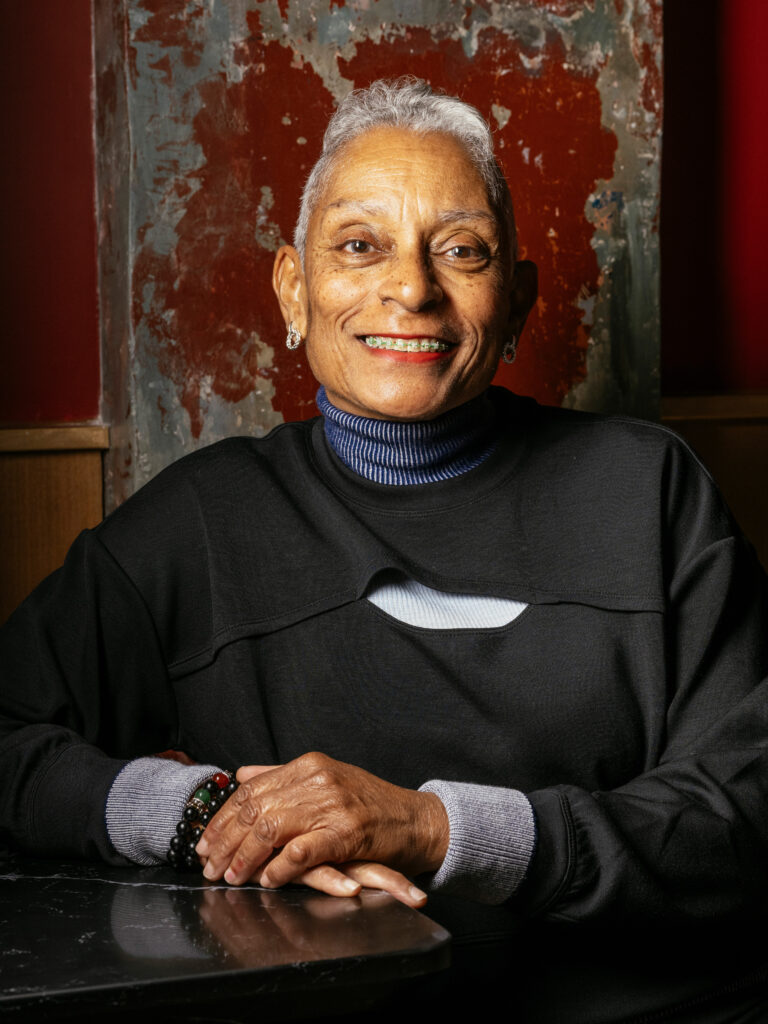
Sweet July spoke to Doucette about the rich history of Dew Drop Inn, his vision for this venture that he says has taken over his life, and the rich historical moments that are captured and memorialized within the inn’s famed walls.
What’s your vision for the restored and reconstructed inn?
Curtis Doucette, Jr.: I want to bring this place back to as close to what it used to be as possible. It was a barber shop, it was a restaurant, it was a bar, it was a nightclub, and it was a hotel. [We’re] bringing back every one of those elements, except for the barbershop. Each room is named after someone special who spent time at the Dew Drop Inn. So there is a Little Richard room. There’s a Ray Charles room. There’s other big, notable names that came through, like Marvin Gaye. And we just passed the 20th anniversary of James Brown performing at the Dew Drop Inn in 1964 with his orchestra. You’ve got Etta James, Ike and Tina, Sam Cook, Aretha Franklin—all of these people that either came through or performed at the Dew Drop Inn. But they only get a room named [after them] if they have a significant history with the place that is more than just a performance. Little Richard would not have recorded the song “Tutti Frutti” if it weren’t for things that happened at the Dew Drop Inn. Musical history was changed forever. Ray Charles was like a friend of the family, and Frank, the original owner, was his booking agent back in the day. But then you have local [talent] who might not be known as much throughout the world, but they should be, people like Allen Toussaint and Irma Thomas. You also have Civil Rights figures like A.P. Tureaud and Dutch Morial, who have rooms because of their Civil Rights fight associated with the Dew Drop Inn [and] New Orleans. We decided to tell all of those stories in detail.
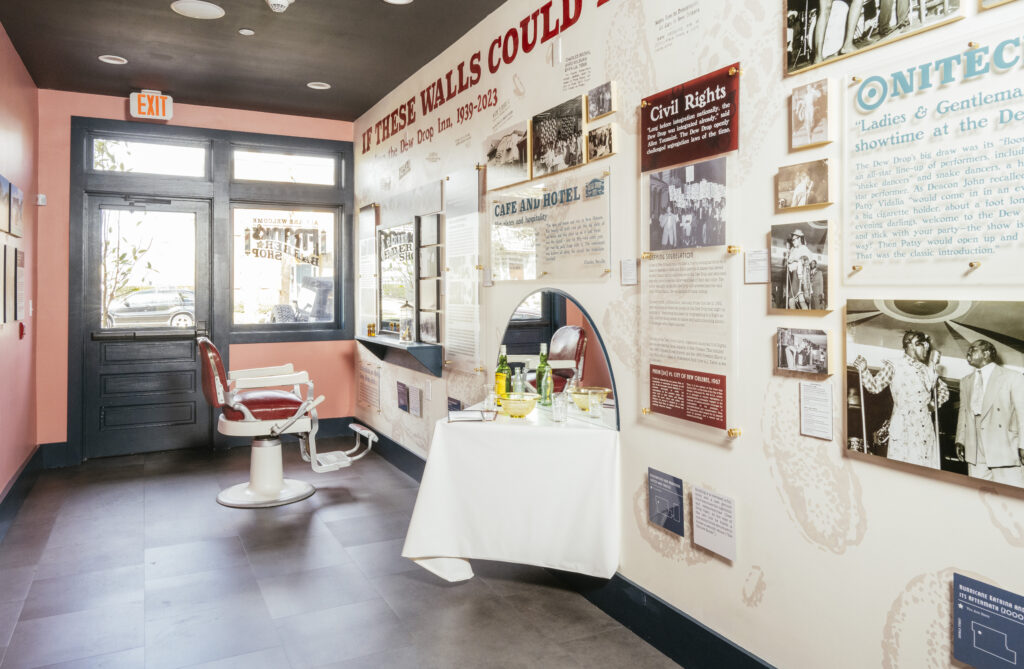
Why is preserving this history so important?
CD: We’re lucky enough to catch this opportunity to tell those stories before [all] the storytellers are gone. I have an uncle who lived in the Dew Drop Inn, and he died right before I started working on this project. But we do have some people who are still around, who can tell us some of the stories of what it was like inside the Dew Drop Inn. I have an aunt [whose] stories as an 83-year-old are mostly about sneaking in because she was too young. I hear stories of Cyril Neville, the younger brother of [R&B and soul singer] Aaron Neville, who would skip school just to hang out and see what might be going on. [There’s] Irma Thomas, who’s a big, big star here in New Orleans and has made a huge impact on music, and Deacon John, a local blues and rock & roll singer, musician and bandleader.
You’ve shared that the Dew Drop Inn has consumed your life—in what way?
CD: This is a passion project for me. It’s something that I’m doing completely by myself as a developer. You know how it is when you’re really passionate about something; it really kind of just takes over. And it also has so many moving parts. I had to raise funds from investors, nearly a million [dollars], at the time of closing. But then there’s also the storytelling aspect of this project. We have essentially created an informal museum. I believe that’s the heart and soul of the project. The history wouldn’t mean as much if everybody who walked in couldn’t learn about it rather quickly.
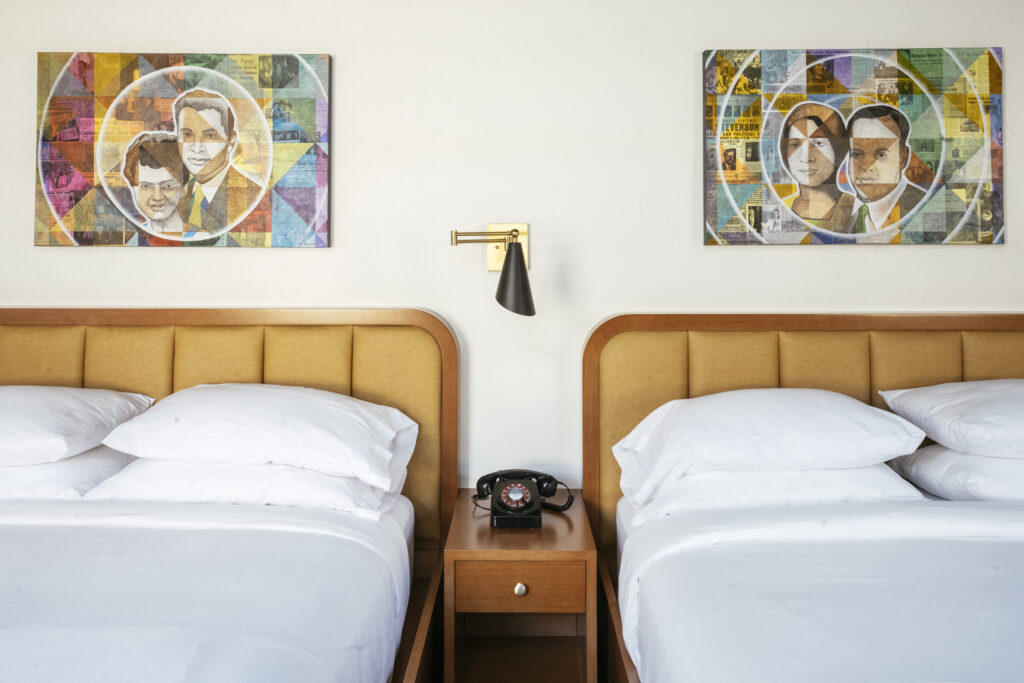
Is there any significance to the name of the inn and have you brought any new meaning to it?
CD: I think it had something to do with the play on words, as in, “Do drop in.” Frank’s grandson, Mr. Jackson, was very adamant that whoever he sold it to would keep it as the Dew Drop Inn. Our history goes back to 1939, and we want to live in the spirit of what the business used to be. I feel like I’m a servant to this history and I do believe that we’re using the history to help us to propel it forward.
What do you want those who visit Dew Drop Inn to leave with?
CD: The Dew Drop Inn is a place where so many people have discovered who they are, and then they became who they were meant to be. I really want everybody who leaves to feel a sense of pride. If you’re a New Orleanian, you’re gonna feel proud because this is your culture. If you’re a Black person, you’re gonna feel proud because this is your culture.If you’re a music lover, a music enthusiast, or a music historian, you’re gonna feel a sense of pride when you come to the Dew Drop Inn. I hope that everybody walks in with a feeling of pride about what we’ve created here, but also a feeling of being inspired in their own lives about what new possibilities await.
This interview has been edited and condensed for clarity.






